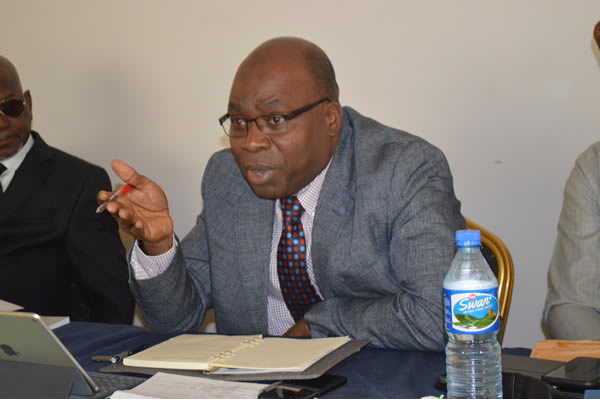EXCITING NEWS: TNG WhatsApp Channel is LIVE…
Subscribe for FREE to get LIVE NEWS UPDATE. Click here to subscribe!
The Independent Corrupt Practices and Other Related Offences Commission (ICPC) has raised alarm over potential corruption within grants received from the World Bank.
During a recent meeting with a delegation from the Economic and Organised Crime Office of Ghana, the ICPC Chairman, Bolaji Owasanoye, alleged that corruption within these grants often goes unaddressed due to political considerations, making it difficult to hold accountable those responsible.
He further emphasized that developing countries face significant challenges within the international ecosystem, as it is not designed to facilitate their progress despite their best efforts.
“We have to understand as developing countries that the political economy of the international ecosystem is not designed for us to progress no matter how hard we try.
“It is enlightened self-interest. For example, Nigeria borrowed one billion dollars in 1978. As at 2006, when we had the write-off, Nigeria was owing 32 billion dollars and it is designed in that way because of their rules of engagement and dispute resolution. The rule uses the IMF and the World Bank to whip you into line when you want to challenge the debt.
“How many countries have taken the World Bank to court? Does it not have failed loans? Many of the loans the World Bank grants are marred in corruption but nobody has the courage to take them to court because those issues are usually politically determined,” Owasanoye said.
He further suggested that the rules of engagement and dispute resolution employed by the IMF and the World Bank can hinder countries’ attempts to challenge their debt burdens.
Regarding the corruption perception of developing countries in international surveys, The ICPC Chairman cautioned against relying solely on such reports.
He noted that these surveys may not be impartial and argued for the creation of a platform where developing countries can voice their perspectives rather than being driven by the outcomes of external reports.
He criticized the use of perception surveys to compare experiences, highlighting the disparity between countries losing assets and those receiving stolen properties.
Owasanoye called for a more comprehensive approach that includes a home-grown survey to gather and publish data from the local context, providing a basis for informed discussions and challenging preconceived notions.
“In developing countries, we are driven by the outcomes and report of international surveys. International surveys are not innocent, and it is naïve to think they are otherwise.
“If you do not create a system where your voice is heard, a kind of platform where you say your own and refuse to be driven by the outcome of those reports, you will continue to be apologetic.
“Is it not strange that Transparency International will rank countries that are losing assets as more corrupt than the countries receiving the stolen properties?” he queried.
The ICPC Chairman emphasised the need for developing countries to adopt a proactive and independent approach in addressing corruption issues.
